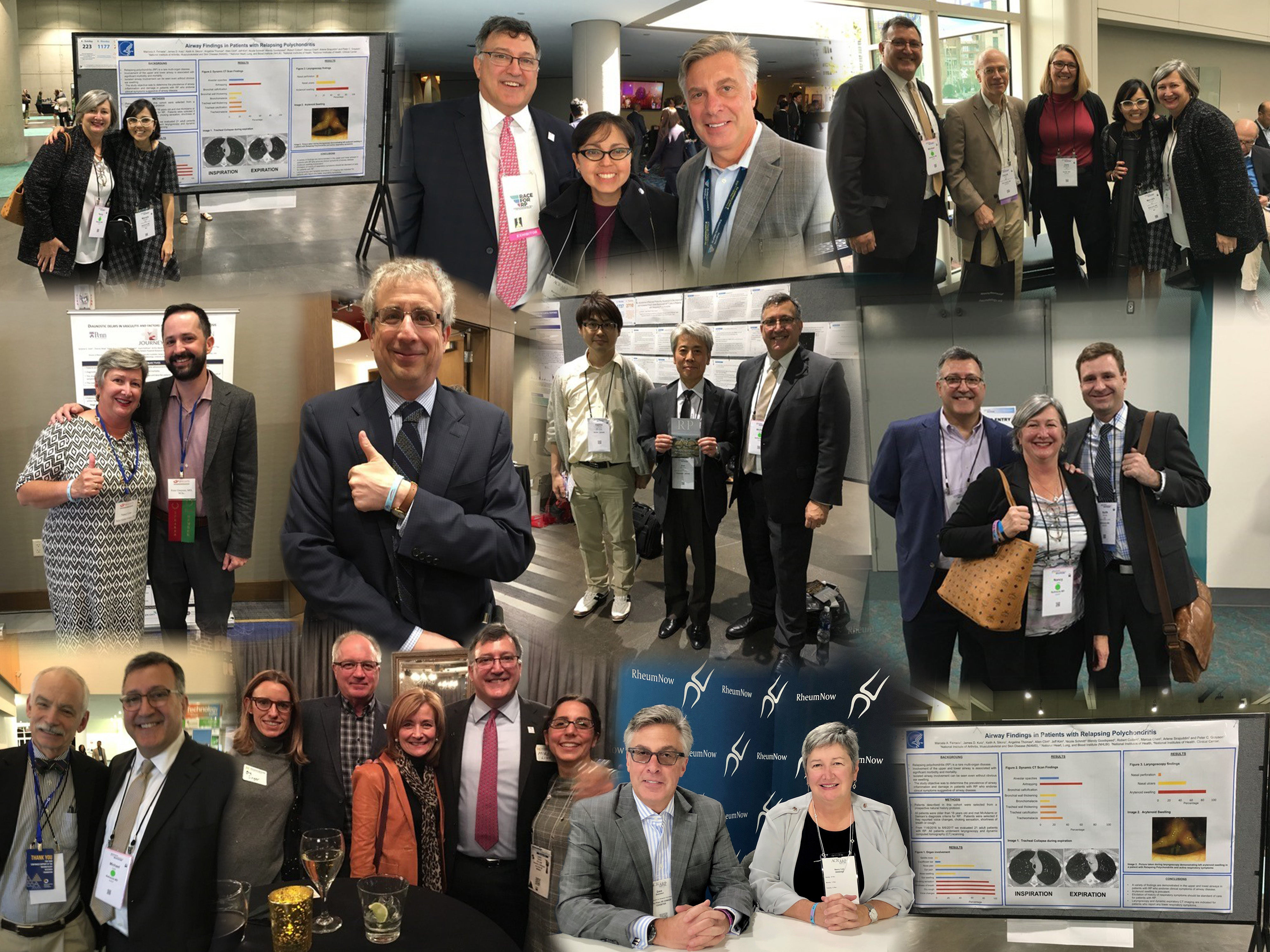Session Information
Date: Sunday, November 8, 2020
Title: Patient Perspectives Poster
Session Type: Poster Session C
Session Time: 9:00AM-11:00AM
Background/Purpose: In 2011, I was diagnosed with relapsing polychondritis (“RP”), a debilitating and sometimes fatal rheumatic disease that is characterized by inflammation of cartilage and other tissues. The disease affects multiple organs, particularly cartilaginous structures such as the ears, nose, airways, and joints as well as the eyes, skin, heart valves and brain. The cause of RP is unknown and there currently is no cure for the disease.
After diagnosis, I realized that I could focus on my specific case – or, I could combat RP more broadly and help others. I decided to live my life with the purpose of helping others.
Intervention:
As a patient, I had the opportunity to be evaluated by an incredible team of multidisciplinary expert medical professionals. While interacting with these experts, it was evident that there were tremendous unmet needs in the areas of diagnosis and treatments. As a retired Registered Nurse, it was clear that targeted research initiatives would be required to combat RP.
Maintenance:
While fighting RP, I met many highly skilled, collaborative research scientists, especially at ACR Annual Meetings.
In 2017 in San Diego, I participated in an RP study group that received a tremendous response from participating clinicians, clinical and basic scientist researchers, patients, and patient advocacy groups.
In 2018 in Chicago, I helped organize the RP Foundation’s reception, co-hosted an event with the University of Michigan Division of Rheumatology, participated on a podcast of a news source dedicated to the field of rheumatology, and facilitated two ACR exhibitor booths.
In 2019 in Atlanta, I participated in an RP investigators meeting, which provided an update on a classification criteria project, introduced a new project to modify the disease activity index, and summarized RP-related projects.
With knowledge gleaned at ACR Annual Meetings, my husband and I collaborated with the RP Foundation to provide a substantial gift in 2020 to establish the Penn RP Fund, which will support a unique partnership between the University of Pennsylvania and the National Institutes of Health sponsored Vasculitis Clinical Research Consortium.
Quality of Life:
Living with the purpose of helping other patients continues to improve the quality of my life. It affords me the opportunity to be excited about the extraordinary advances in patient care and cutting-edge research.
Participating at ACR Annual Meetings has provided exceptional opportunities to learn and collaborate with highly skilled research scientists. Further, I was able to build relationships with these scientists, which played a key role in the launch of the Penn RP program.
This program will allow researchers to pursue important projects, including the development of a world-class referral center to examine the impact of the microbiome on RP disease activity. Additionally, patients with RP will have the opportunity to be evaluated by multiple subspecialties in a coordinated patient-centered manner.
I am confident that the Penn RP program will significantly improve the quality of my life and other RP patients for years to come.
 Photo collage of highly skilled, collaborative research scientists and relapsing polychondritis advocates
Photo collage of highly skilled, collaborative research scientists and relapsing polychondritis advocates
 Relapsing polychondritis (RP) thought leadership at the American College of Rheumatology (ACR) meetings
Relapsing polychondritis (RP) thought leadership at the American College of Rheumatology (ACR) meetings
 The Relapsing Polychondritis Foundation formed a powerhouse healthcare coalition with the University of Pennsylvania and the NIH sponsored Vasculitis Clinical Research Consortium
The Relapsing Polychondritis Foundation formed a powerhouse healthcare coalition with the University of Pennsylvania and the NIH sponsored Vasculitis Clinical Research Consortium
To cite this abstract in AMA style:
Linn N, Bammert C, Bammert D, Linn M. Connecting with Rheumatology Professionals and Thought Leaders Inspired the Creation of a New Program Focused on Relapsing Polychondritis (“RP”), a Rare Rheumatic Disease: Participating at ACR Annual Meetings Has Provided Exceptional Opportunities to Learn and Build Relationships [abstract]. Arthritis Rheumatol. 2020; 72 (suppl 10). https://acrabstracts.org/abstract/connecting-with-rheumatology-professionals-and-thought-leaders-inspired-the-creation-of-a-new-program-focused-on-relapsing-polychondritis-rp-a-rare-rheumatic-disease-participati/. Accessed .« Back to ACR Convergence 2020
ACR Meeting Abstracts - https://acrabstracts.org/abstract/connecting-with-rheumatology-professionals-and-thought-leaders-inspired-the-creation-of-a-new-program-focused-on-relapsing-polychondritis-rp-a-rare-rheumatic-disease-participati/
